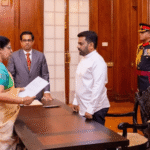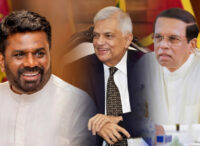The government has pressed forward with its education reform agenda despite mounting criticism from teacher unions over the lack of stakeholder consultation.
Speaking at a provincial awareness programme in Galle on Saturday, Minister of Education and Prime Minister Dr. Harini Amarasuriya outlined key aspects of the reforms, which include reducing classroom sizes to 25–30 students, enhancing teacher professionalism, modernising outdated curricula, and integrating vocational pathways into mainstream education.
“The curriculum in teacher training colleges hasn’t changed in 16 years. From August, we will begin training teacher trainers,” she said, adding that reforming infrastructure and administration are also part of the plan.
Deputy Minister of Vocational Education Nalin Hewage said steps are underway to allow students to pursue vocational training based on talent, not just academic performance.
However, the Ceylon Teachers’ Union condemned the reforms as unilateral and premature. General Secretary Joseph Stalin warned of widespread protests if the government fails to include all stakeholders. He said the NIE has not been informed and no teacher training has been conducted.
Stalin stressed that exam reform, university access, and skills development remain unaddressed, adding, “No meaningful reform can succeed without solving these fundamental issues.”











Leave a comment